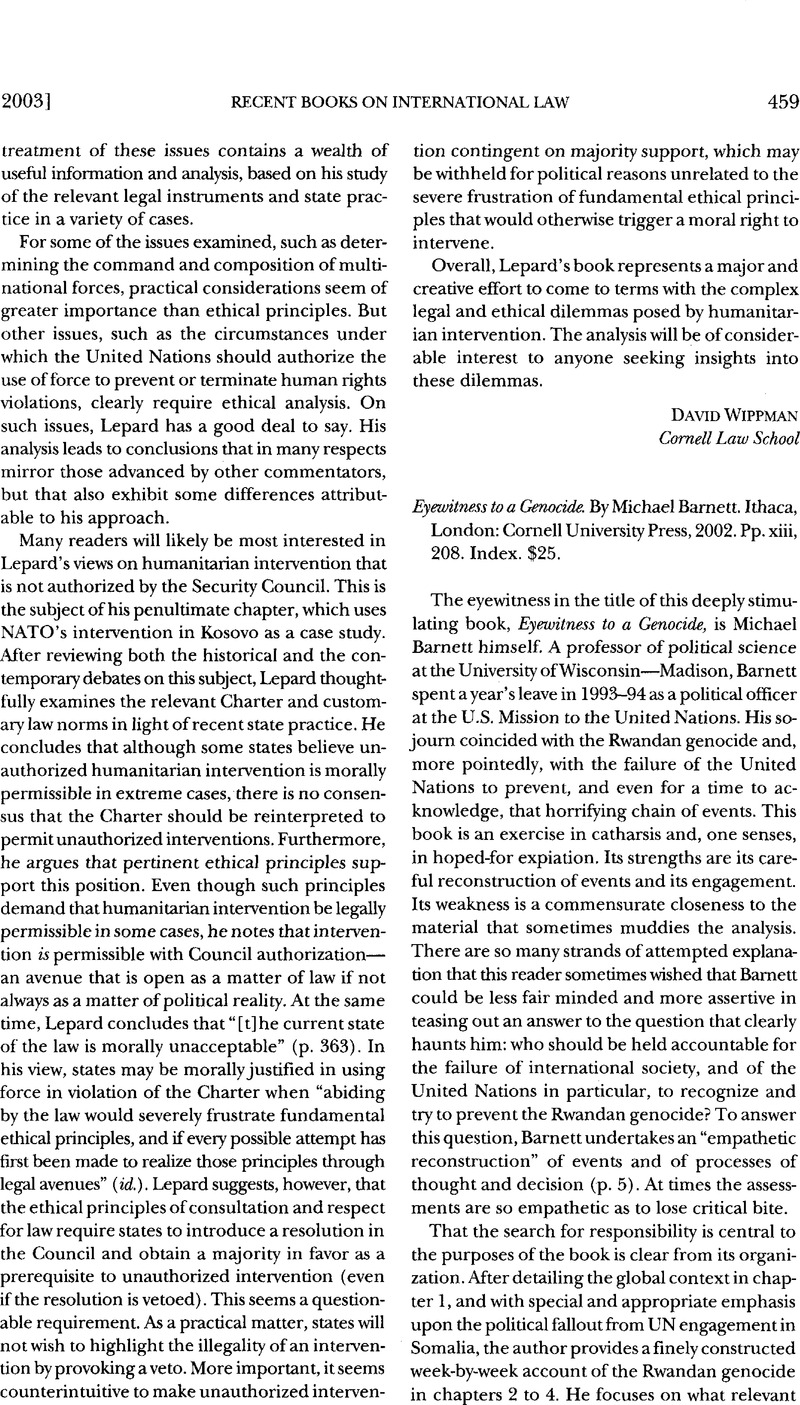No CrossRef data available.
Published online by Cambridge University Press: 27 February 2017

1 Weber, Max, Politics as a Vocation, in From Max Weber 127 (Gerth, H. H. & Wright Mills, C. trans, and eds., 1958)Google Scholar.
2 For a full description of constructivist approaches to international relations and their place in the academy, see Katzenstein, Peter J., Keohane, Robert O., & Krasner, Stephen D., International Organization and the Study of World Politics, 52 Int’l Org. 645, 674–78 (1998)Google Scholar; John, Gerard Ruggie, What Makes the World Hang Together? Neo-utilitarianism and the Social Constructivist Challenge, 52 Int’l Org. 855 (1998)Google Scholar; and Jutta, Brunnée & Toope, Stephen J., International Law and Constructivism: Elements of an Interactional Theory of International Law, 39 Colum.J. Transnat’l L. 19, 25–37 (2000)Google Scholar.
3 See, e.g., Wendt, Alexander, The Agent-Structure Problem in International Relations Theory, 41 Int’l Org. 335 (1987)CrossRefGoogle Scholar Checkel, Jeffrey T., The Constructivist Turn in International Relations Theory, 50 World Pol. 324, 325–26, 342 (1998)Google Scholar.
4 2 Gentili, Alberico, Dejure Belli Libri Tres (Rolfe, John C. trans., Carnegie ed. 1933)Google Scholar (1612), quoted in Meron, Theodor, Common Rights of Mankind in Gentili, Grotius and Sudrez, 85 AJIL 110, 114 (1991)Google Scholar.
5 Dec. 9, 1948, 78 UNTS 277 (emphasis added).
6 UN Charter Art. 55 (c). See also Article 1(3), which includes “promoting and encouraging respect for human rights and for fundamental freedoms” among the primary objects of the organization.
7 Barcelona Traction, Light and Power Co. (Belg. v. Spain), Second Phase, 1970 ICJ Rep. 3, para. 33 (Feb. 5).
8 For a more complete version of this argument, see Toope, Stephen J., Does International Law Impose a Duty upon the United Nations to Prevent Genocide? 46 MCGILL L.J. 187 (2000)Google Scholar.